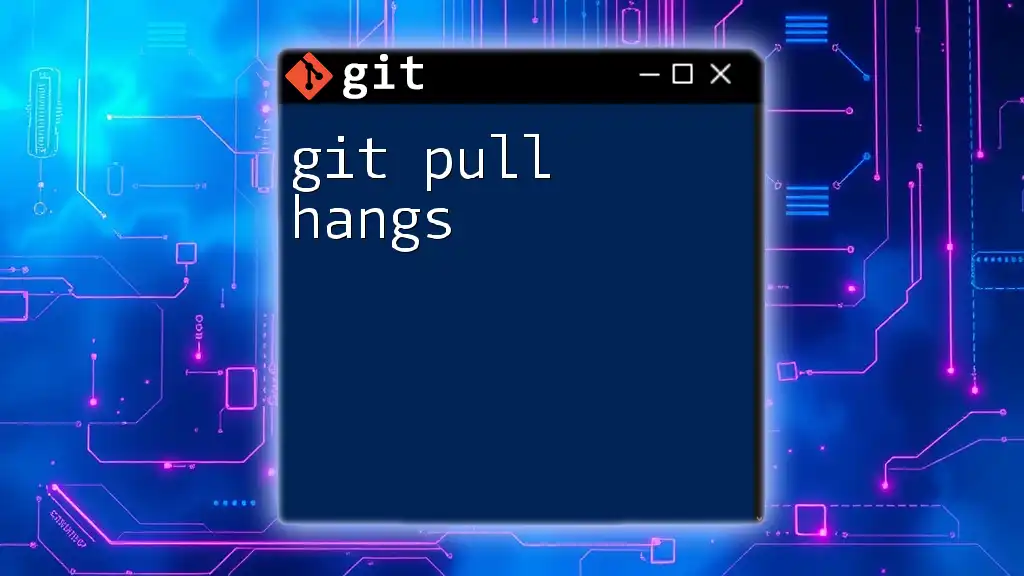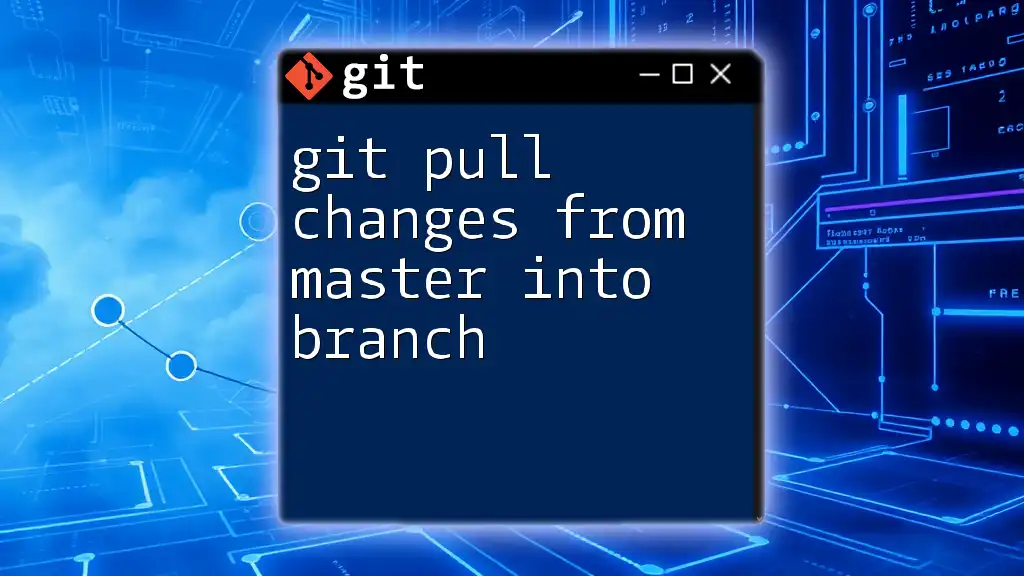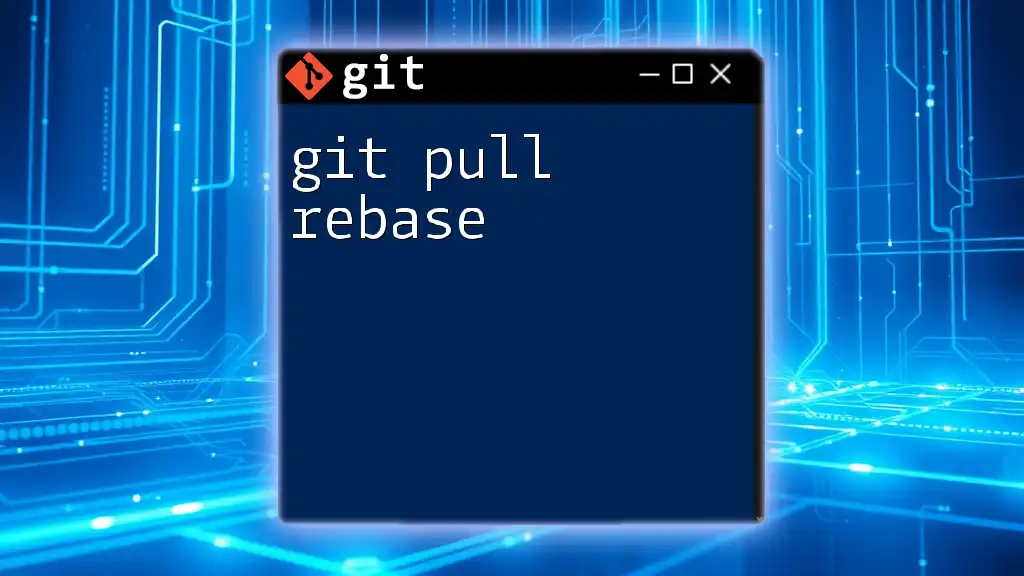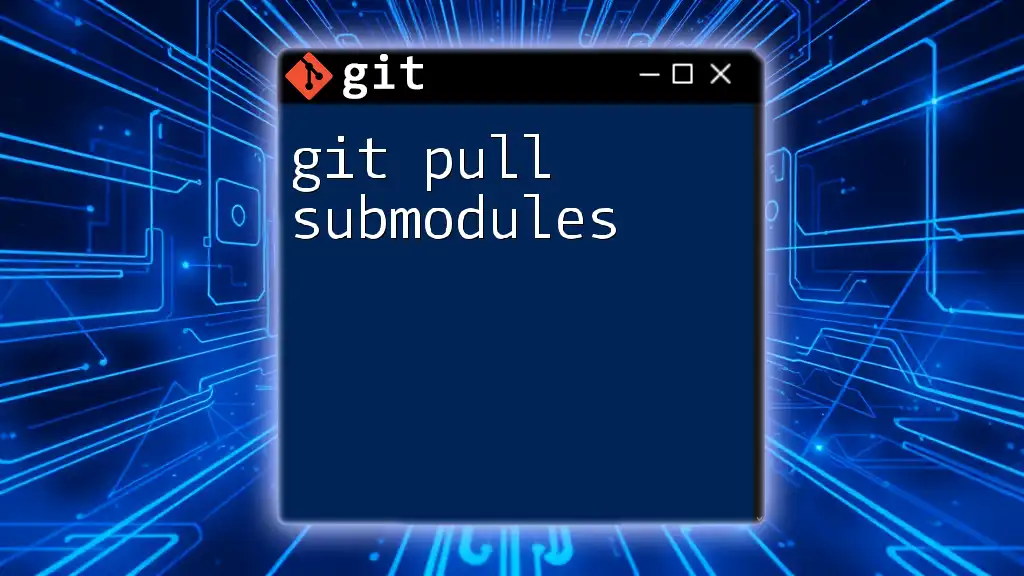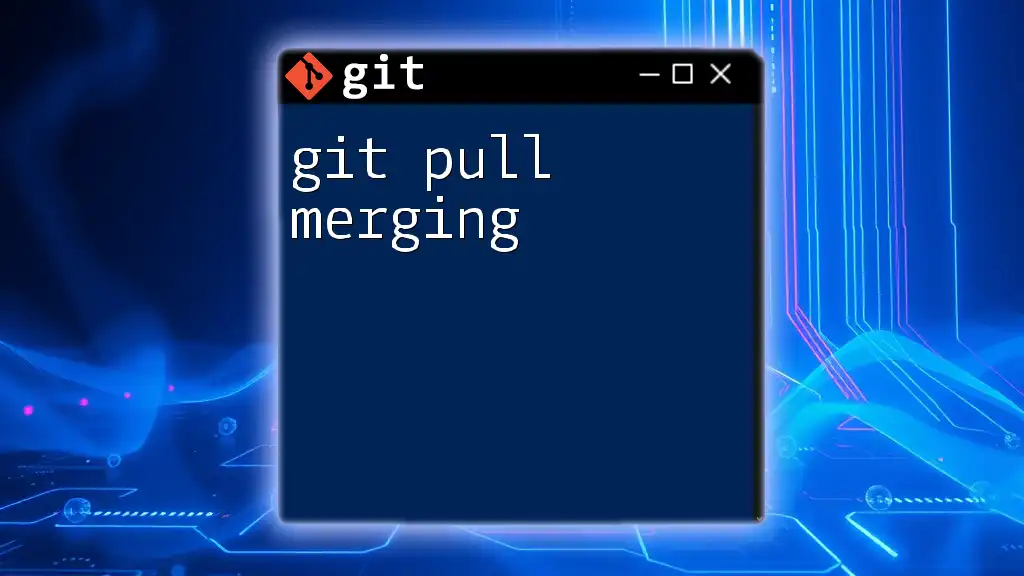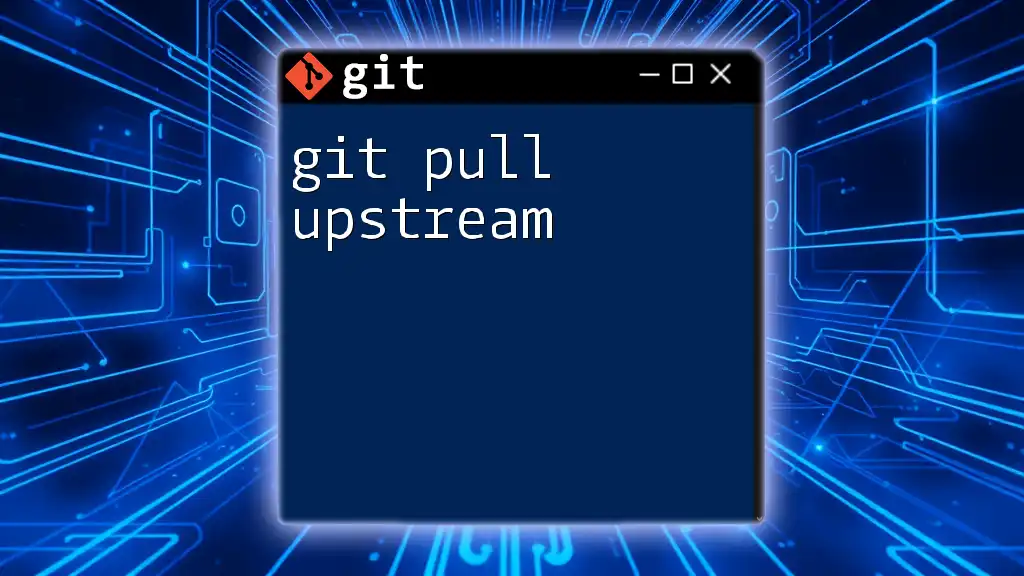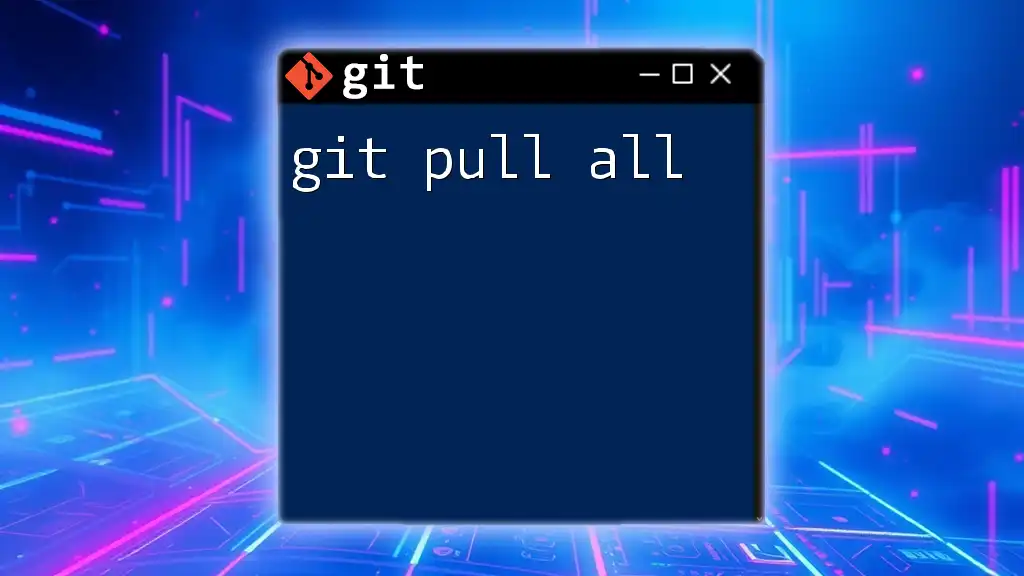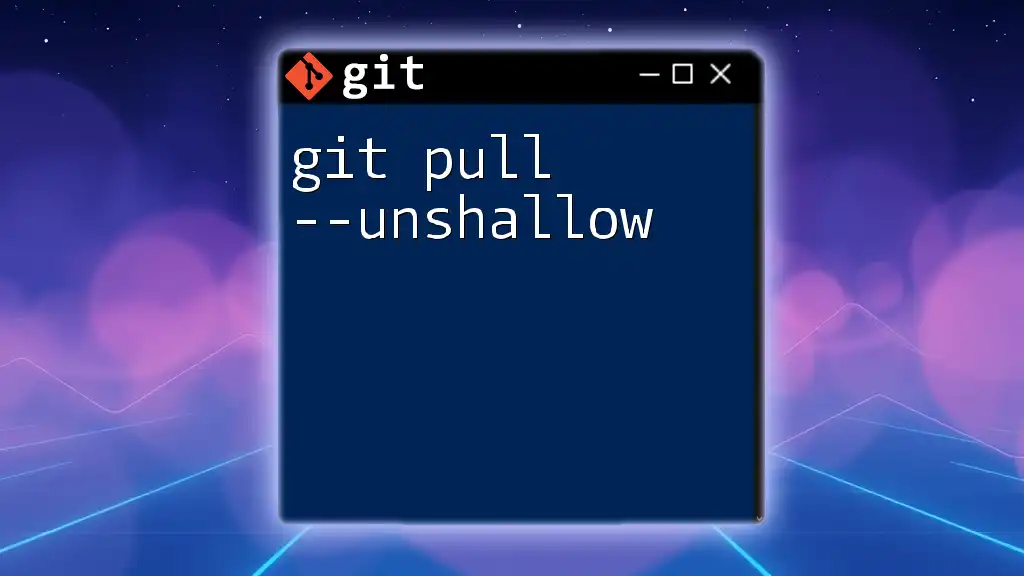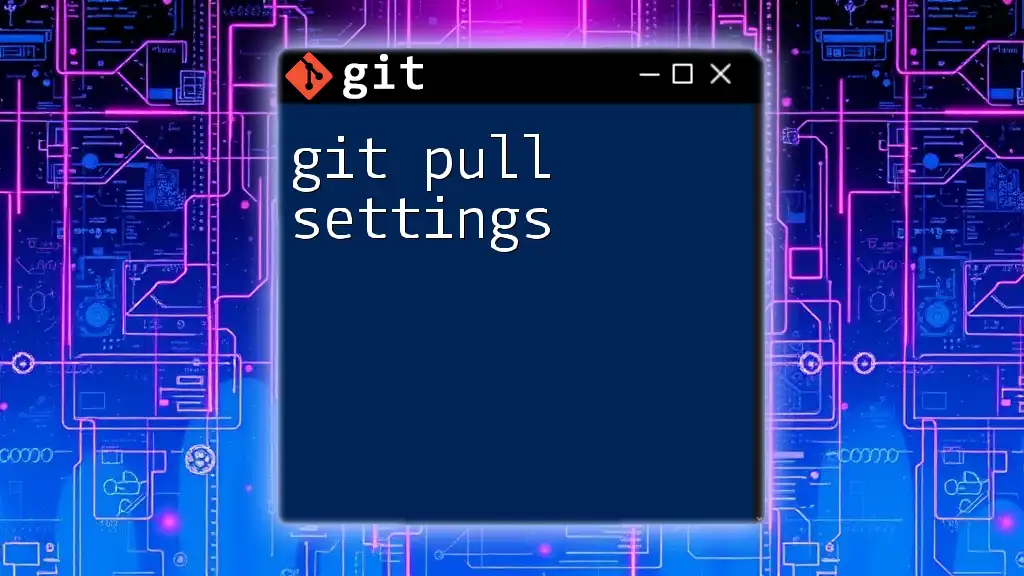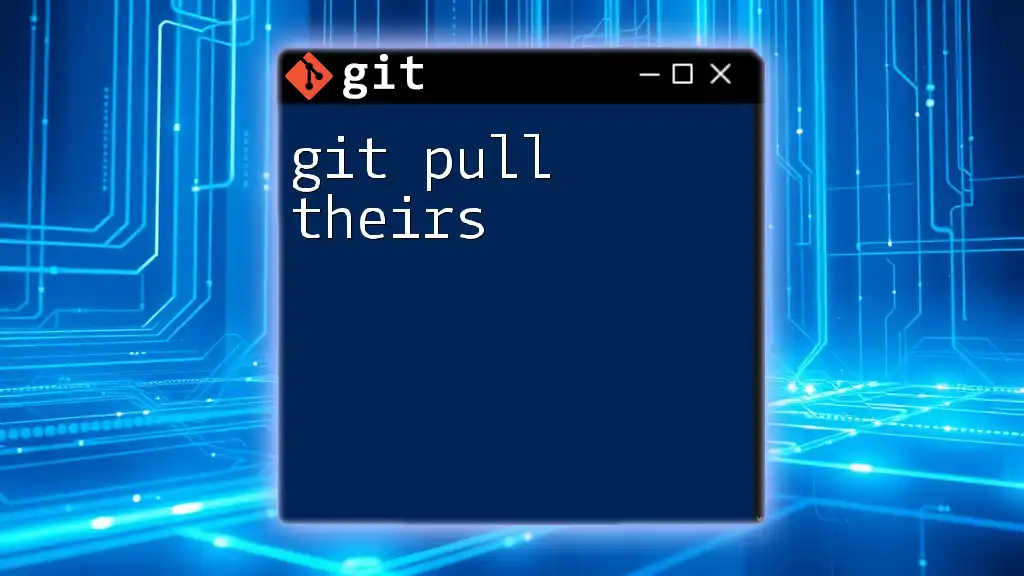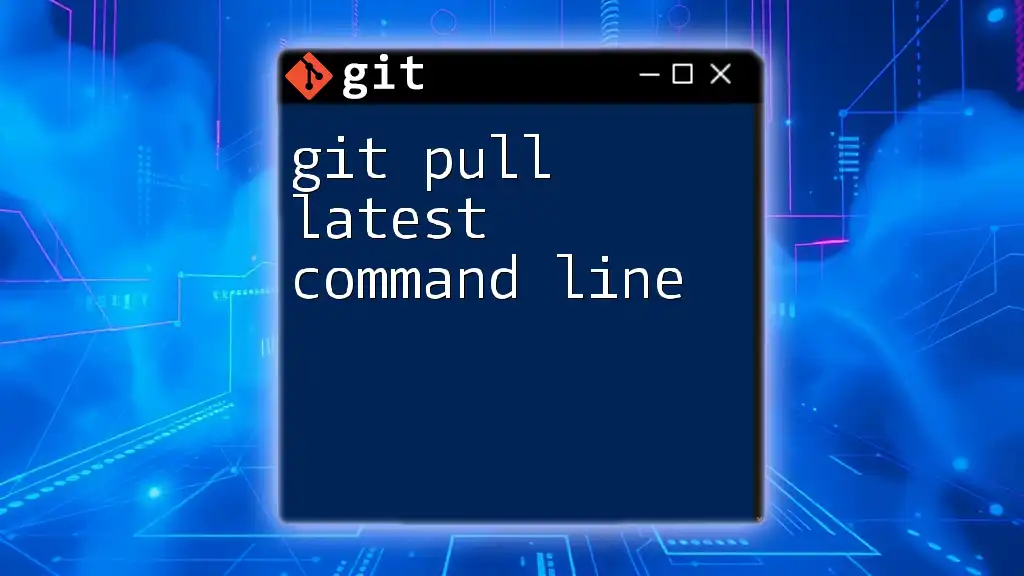When `git pull` hangs, it may be due to network issues or conflicts that require resolution, and you can use the following command to check your network connectivity:
ping github.com
Understanding Git Pull Hangs
What is Git Pull?
The `git pull` command is an essential tool in a developer's toolkit, serving the purpose of updating the local repository with the latest changes from a remote repository. Essentially, it combines two key actions: `git fetch` and `git merge`. When you execute a `git pull`, Git fetches changes from the specified remote branch and merges them into your current branch, ensuring your codebase is up to date.
Common Symptoms of Git Pull Hangs
Experiencing hanging issues with `git pull` can be frustrating. Common symptoms include the command not generating output or the progress percentage failing to update. This can occur in a variety of scenarios, such as working with large repositories, slow internet connections, or during complex merges when the local and remote branches have diverged significantly.
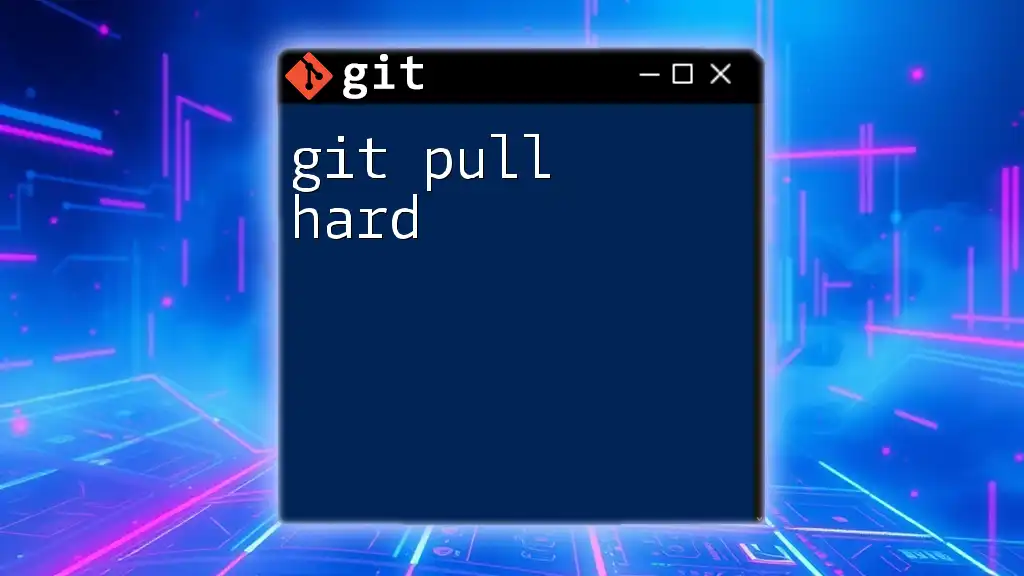
Diagnosing Git Pull Hangs
Initial Checks
Before diving deeper into complex diagnostics, it’s crucial to conduct some initial checks. First, ensure there aren’t any network issues impacting your connection to the remote repository. Problems such as poor internet connectivity or VPN configurations can contribute to `git pull` hanging.
Next, consider repository size. Large repositories, especially those loaded with extensive histories or sizable binary files, can affect performance. You can evaluate repository size with commands like:
git rev-list --count HEAD
This command counts the number of commits, reflecting the repository's size.
Additionally, check your local changes. Unstaged or uncommitted modifications may lead to complications when pulling changes from a remote. You can view the status of your workspace using:
git status
Advanced Diagnostics
For more intricate issues, employing advanced diagnostics techniques is essential. Starting with verbose mode, run:
git pull --verbose
This command provides detailed information about what Git is processing, helping identify any points where the process hangs.
Log examination is another critical step. You may check the Git logs to diagnose possible issues, using:
git reflog
This command can assist in tracing the history of changes and may highlight conflicts or anomalies affecting the pull.
Moreover, consider utilizing Git's debugging tools. Setting environment variables such as:
export GIT_TRACE=1
or
export GIT_CURL_VERBOSE=1
helps provide deeper insights into the operations being performed during the `git pull`.
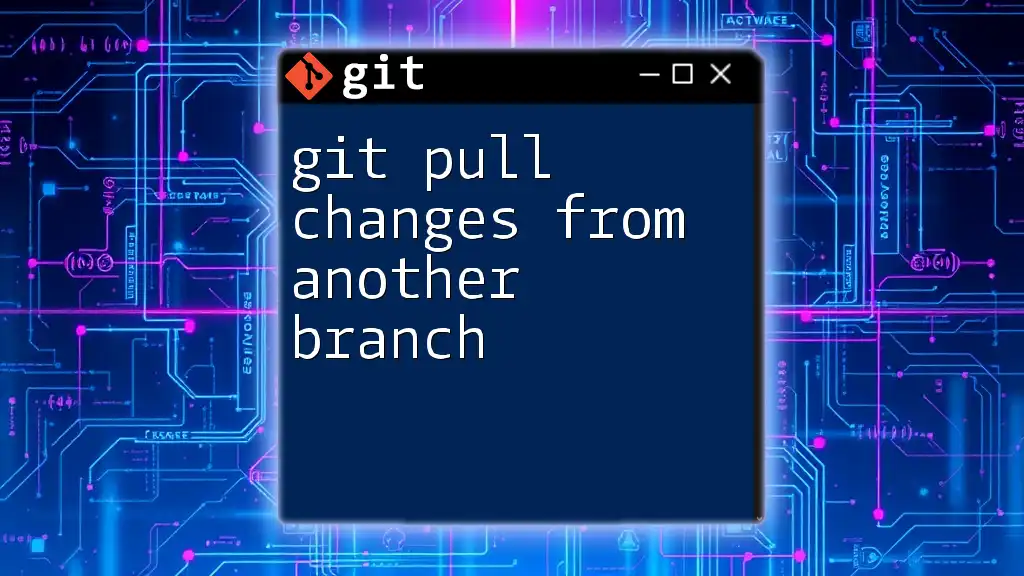
Common Causes of Git Pull Hangs
Merge Conflicts
One of the primary culprits behind `git pull` hangs is merge conflicts. When the changes you've made locally conflict with those in the remote branch, Git will pause the process to allow for conflict resolution. A common warning message may appear, typically indicating which files are in conflict.
To resolve these conflicts, you can start by checking which files are causing the problem:
git status
Follow the instructions to open those files and manually resolve the conflicts, marking the resolutions using `git add` before finalizing the merge.
Large Files and Repositories
Large files can significantly increase the time it takes for a `git pull` operation to complete. Such large repositories may experience slowdowns, leading to hangs. To address these issues, consider using Git Large File Storage (Git LFS) to handle large files more efficiently.
For instance, you can enable Git LFS with:
git lfs install
In addition, shallow cloning is a technique that allows you to reduce the size of the repository you pull. By executing:
git clone --depth 1 <repository-url>
You can create a shallow copy of the repository that only contains the latest commits, helping to speed up operations.
Remote Repository Issues
Sometimes, hanging problems arise not on the local side, but due to issues with the remote repository. Heavy server load or outages may disrupt your ability to perform successful pulls. It’s wise to check the status of the remote server, perhaps visiting service status pages if available.
Additionally, authentication problems can hinder your pull operation. If your SSH keys or access permissions aren’t set correctly, Git will stall while trying to authenticate. Verifying your keys and permissions involves checking the configuration with:
ssh -T git@github.com
This command helps confirm that connectivity and permissions are correctly established.
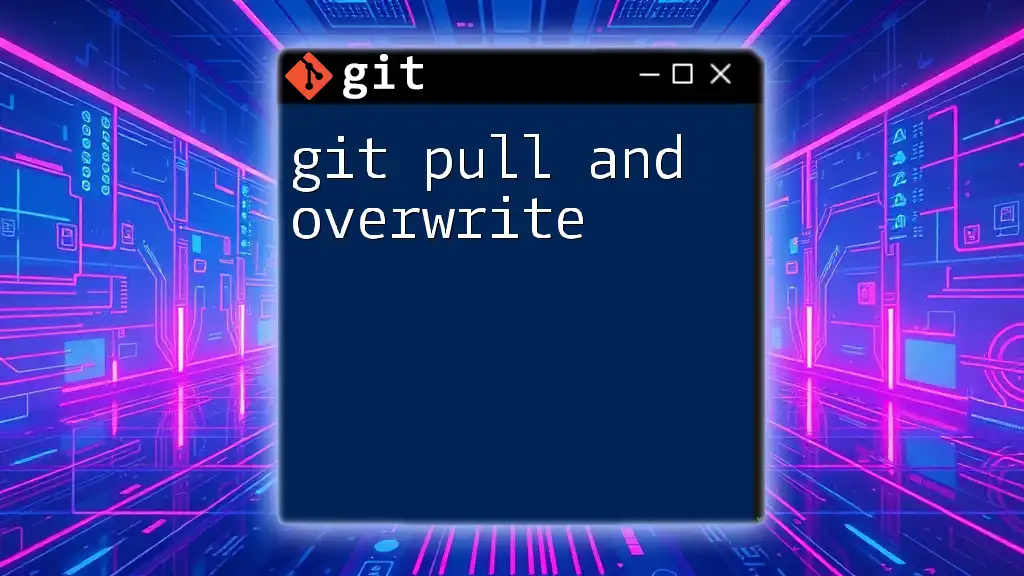
Solutions for Git Pull Hangs
Quick Fixes
If you find that your `git pull` has hung, one immediate solution is to cancel the process. You can safely interrupt the hanging operation using `Ctrl + C`. After cancellation, you may decide to restart the pull; however, be cautious about potential conflicts that may have arisen during the initial attempt.
Another option is resetting the state of your repository. If you experience persistent hanging, using:
git reset --hard
can effectively return your branch to its last committed state (but remember, this command will result in the loss of any uncommitted changes).
Long-Term Solutions
To prevent hanging issues in the future, consider optimizing your Git configurations. Tweaking settings in your `.gitconfig` can lead to improved performance. For instance, adjusting the `http.postBuffer` size may help with large repositories:
git config --global http.postBuffer 524288000
Switching to pull with rebase can also be beneficial, reducing potential merge complexities. Use the command:
git pull --rebase
This method reapplies your local changes on top of the latest changes from the remote, creating a more linear history and potentially avoiding conflicts altogether.
Finally, regular maintenance of your repository is critical. Utilizing commands such as:
git gc
can help clean up unnecessary files and optimize the local repository, enhancing performance over time.
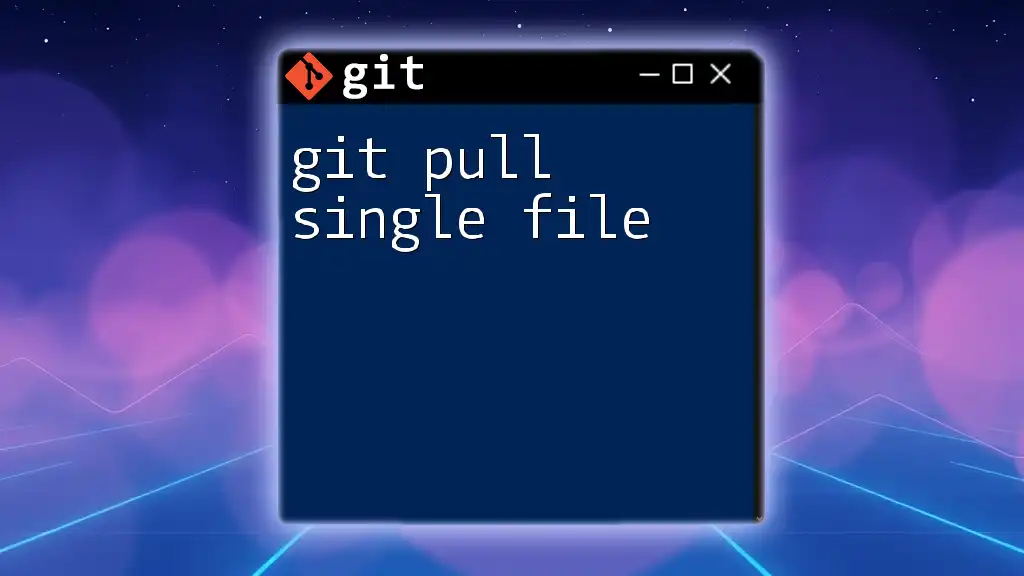
Best Practices to Avoid Git Pull Hangs
Guidance for Efficient Pulls
Establishing a routine to pull changes regularly can alleviate many hanging issues. By maintaining a more frequent syncing of your local and remote branches, you can avoid complex merges and conflicts down the line.
Employing effective branching strategies is equally crucial. Consider using feature branches or topic branches, which isolate development efforts and reduce the likelihood of extensive divergence from the main branch.
Maintaining Clear Communication
Good communication within your team will enhance the efficiency of your Git workflows. Make it a practice to inform colleagues about ongoing changes, especially during heavy merge periods.
Additionally, documenting changes during merges and keeping a detailed commit log can greatly assist in resolving issues when they arise.
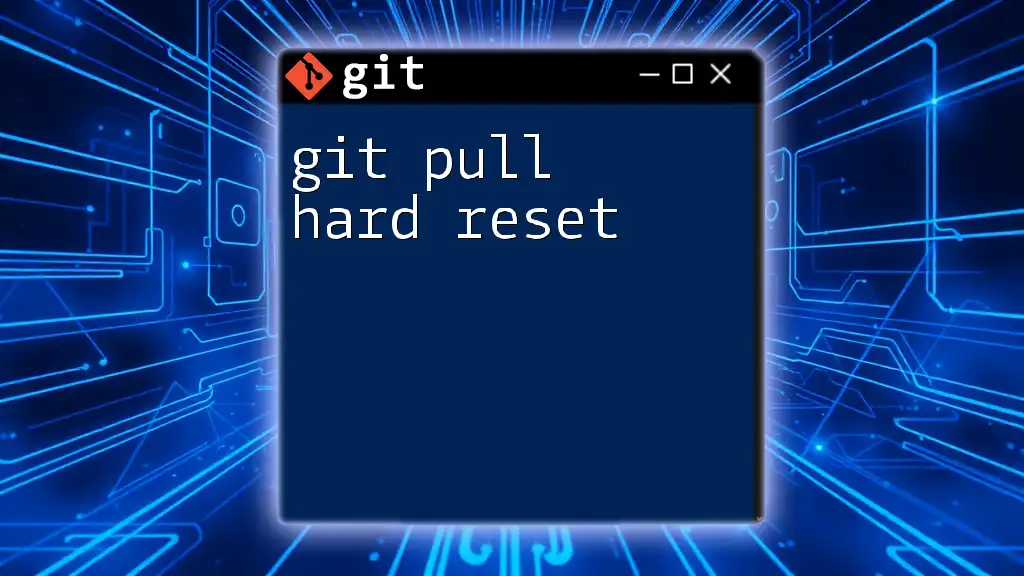
Conclusion
In summary, the frustrations of `git pull hangs` can often be traced back to a variety of issues, from network problems to merge conflicts and large repository size. By developing a systematic approach to diagnosing the challenges and implementing both quick fixes and long-term solutions, you’ll position yourself to avoid these hangs effectively. By consistently practicing good habits and coordinating with your team, you can keep your Git workflows running smoothly, thus enhancing your overall development efficiency.
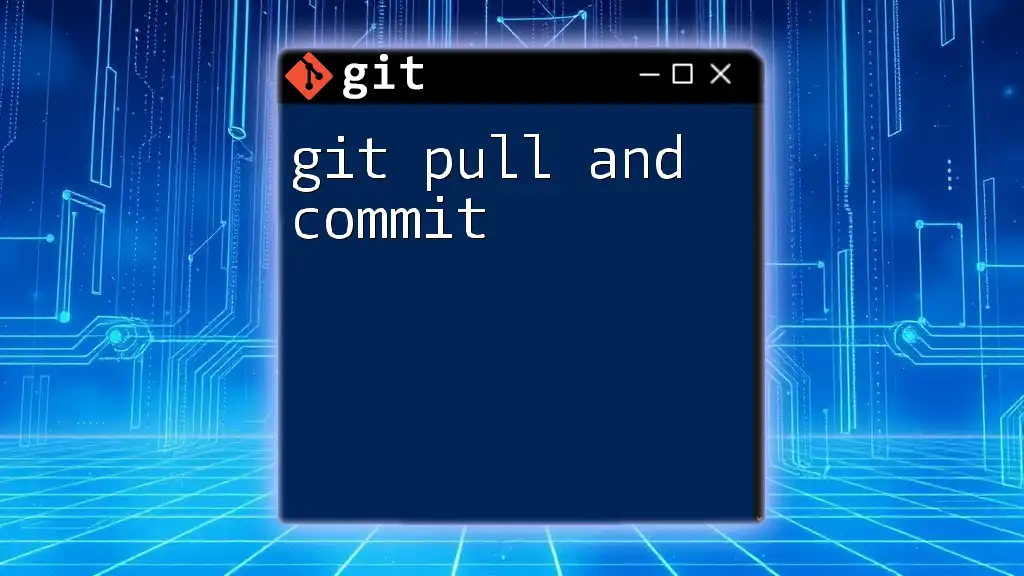
Additional Resources
To further enrich your Git knowledge, consult the official Git documentation for a deeper understanding of commands and functionalities. Additionally, exploring tools and plugins designed to improve Git practices can significantly enhance your productivity. Consider tools like GitKraken, SourceTree, or GitHub Desktop, which provide user-friendly interfaces to manage Git repositories seamlessly.

